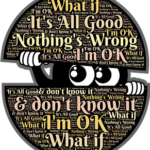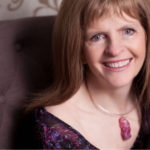Your Judgments Are About You
Choosing Love: Moving from ego to essence in relationships by Gina Lake
 Your judgments are not about others; they are about you and your conditioning. For example, if you are judgmental toward someone who is really extremely quiet (or toward yourself about this), that’s because you have conditioning that says it’s not okay to be extremely quiet. The problem is that this judgment simply isn’t true. It’s okay to be extremely quiet, especially when that’s the case. It’s okay simply because that’s the way it is. Why argue with reality? Some people are quiet, and that’s the truth. End of story. Of course, the ego is always arguing with reality, and that’s why we suffer.
Your judgments are not about others; they are about you and your conditioning. For example, if you are judgmental toward someone who is really extremely quiet (or toward yourself about this), that’s because you have conditioning that says it’s not okay to be extremely quiet. The problem is that this judgment simply isn’t true. It’s okay to be extremely quiet, especially when that’s the case. It’s okay simply because that’s the way it is. Why argue with reality? Some people are quiet, and that’s the truth. End of story. Of course, the ego is always arguing with reality, and that’s why we suffer.
If seeing someone who is quiet triggers a judgment and causes you to react, then you have an opportunity to explore any negative beliefs that you have around being quiet. What meaning do you give to being quiet? What does it mean if you or someone else is quiet? Does it mean to you that he or she (or you) is a mad person? Sad? Depressed? Troubled? Unhappy? Uncover all the meanings you give to be extremely. Whether the ideas you have about being quiet apply to you or someone else, they cause you to contract when you believe them, and if you express them, they cause others to suffer too. Unless you want to suffer and be a source of suffering in this world, it’s wise to examine any conditioning that causes you to contract. Once you discover how untrue and how unhelpful such beliefs are, they begin to lose their power to cause you add others suffering.
Just because others have the same conditioning – the same false beliefs – doesn’t make that conditioning true. No one’s conditioning is true, not ultimately, and no one has “the right” conditioning or beliefs. We all have our own conditioning, and no one has exactly the same conditioning, which helps explain why getting along with others is so challenging. To make things worse, we think our conditioning is true and correct, or at least better than someone else’s, if we didn’t, we wouldn’t be judging others and try to change them. We believe our conditioning is right and superior because we are programmed to believe it is right and superior.
Like a fish in water, we don’t see or examine certain programmed assumptions we have as a human being. One of the deepest and most unconscious assumptions we have is that what we think is true. We live by the unquestioned assumption that if we think it, it must be true. We don’t question our beliefs because they are what we think. Since everyone has different ideas (conditioning), this conviction our beliefs are unquestionably true causes a lot of problems in relationships. a great deal of energy is expended trying to convince others of what we believe or trying to defend our ideas when it could be much better spent.
Ideas are just ideas. They’re not that important, but we are programmed to think they are because ideas create our identity – they create the you that you think you are. Without your ideas, beliefs, opinions, dreams, and memories, who would you be?
Your judgments relate to beliefs you personally hold as true. They are true to you, but not ultimately true. The beliefs you hold as true are often very different from the ones others hold as true, and no one is ultimately true, and no one is ultimately true, although every ego believes its beliefs are. The best thing that can be said about any belief is that it may have more truth than another, but that also often depends on one’s perspective – one’s conditioning.
Although some conditioned ideas and beliefs appear to be truer and more helpful than others, it’s not our business to try to change other’s people’s conditioning unless they invite us to. Even when someone is our spouse, lover, parent, sibling, or close friend, changing their conditioning is still not our business.
Only The Good Feel Guilty
The Rules of Life by Richard Templar
 Bad people feel guilty, they are too busy being bad. Good people feel guilty because they are good and they feel they have done wrong, let somebody down, made a mistake or screwed up somewhere. Good people have a conscience. Bad people don’t. If you, do not feel guilty, that’s a good sign. It shows you are on the right track. But you have to know how to deal with it because guilt is a terribly selfish emotion. It is wasteful and pointless.
Bad people feel guilty, they are too busy being bad. Good people feel guilty because they are good and they feel they have done wrong, let somebody down, made a mistake or screwed up somewhere. Good people have a conscience. Bad people don’t. If you, do not feel guilty, that’s a good sign. It shows you are on the right track. But you have to know how to deal with it because guilt is a terribly selfish emotion. It is wasteful and pointless.
We have two choices: put it right or dump the guilt. Yes, we all make mistakes. We all screw up from time to time. We don’t always do the right thing. And if we’ve got a conscience, we will feel guilty sometimes. But guilt is utterly pointless unless it is acted on for the better. You would be better off feeling something else, iff you aren’t going to act on your guilt. If you hang around feeling guilty but don’t don’t do anything about it, then it’s a waste of time and life.
The first thing to do is to assess whether you really need to feel guilty. It could just be an overdeveloped conscience or sense of duty. If you are the kind of persona always to volunteer, but just this once you say ‘no’, then there is no need to feel guilty. You’ll know deep down if you’ve earned this one off. If you have a choice between doing something or not, then it’s simple: do it or don’t do it but without guilt. Make the choice with that in mind. Not doing it and feeling guilty is not an option.
If you have cause to feel guilty, then if you can, put it right. That’s the simplest course of action. And what if you can’t make things right? Then learn the lesson, make a resolution, dump the guilt and move on. If it keeps on gnawing away at you, you have to find a way to put it behind you.
Inspiration for Daily Joy
 You are built not to shrink down to less, but to blossom into more. To be more splendid. To be more extraordinary. To use every moment to fill yourself up.
You are built not to shrink down to less, but to blossom into more. To be more splendid. To be more extraordinary. To use every moment to fill yourself up.
When we were children, we used to think that when we were brown-up we would no longer be vulnerable. But to grow up is to accept vulnerability … to be alive is to be vulnerable. – Madeline Engle –
All changes, even the most longed for, have their melancholy; for what we leave behind us is a part of ourselves; we must die to one life before we can enter another. – Anatole France –
 TIME FOR SELF NEWSLETTER contributed by:
TIME FOR SELF NEWSLETTER contributed by:
Heather Young, owner of Time for Self
Registered Massage Therapist (RMT) / Yuen Method™/ Holistic Practitioner
Certified Personal Transformation Coach / Alternative and Energetic Medicines
403-358-2362 — Red Deer, Alberta, Canada